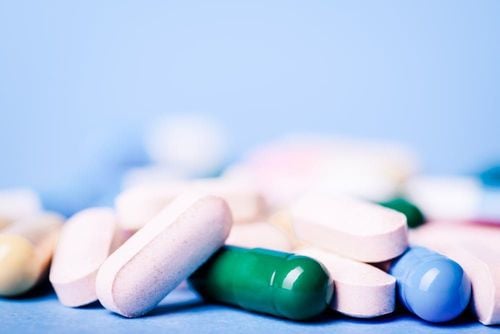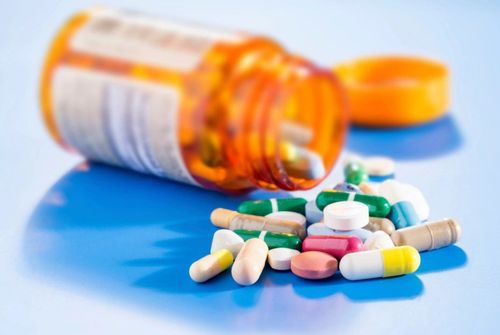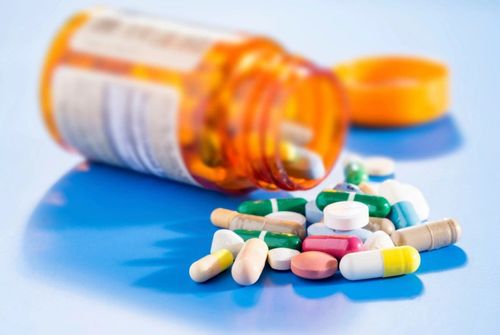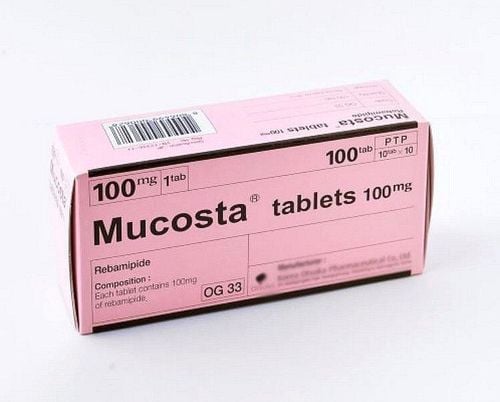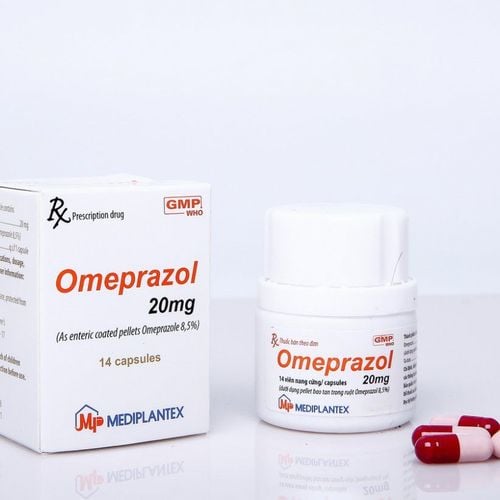This is an automatically translated article.
Medrol is a drug belonging to the group of glucocorticoid drugs, with strong anti-inflammatory, immunosuppressive and anti-allergic effects. Medrol is commonly used in many inflammatory and allergic diseases. On the market today, there are many different dosages of Medrol, you need to pay attention to use the right dose.1. Types of drug content Medrol
Medrol medicine has the main ingredient Methylprednisolone. The drug is produced in the form of tablets, with two different strengths of 4mg and 16mg.
Methylprednisolone is a potent corticosteroid with at least five times more anti-inflammatory activity than hydrocortisone. Medrol is indicated in the treatment of many different medical conditions, including:
Primary and secondary adrenal insufficiency Congenital adrenal hyperplasia Rheumatoid arthritis Juvenile arthritis Spondylitis ankylosing spondylitis Systemic lupus erythematosus Polymyositis Rheumatic fever with severe inflammation Giant arteritis / polymyalgia rheumatica Pemphigus vulgaris Seasonal allergic rhinitis of many years and severity. Drug Hypersensitivity Reactions Serum Disease Allergic Contact Dermatitis Bronchial Asthma Anterior uveitis Uveitis Optic Neuritis Pulmonary Tumor Severe or common tuberculosis in combination with anti-tuberculosis chemotherapy suitable) Gastric choking Hemorrhage Immune thrombocytopenia Hemolytic anemia (autoimmune) Leukemia (acute and lymphatic) Malignant lymphoma Colitis Crohn's disease Tuberculosis meningitis (with history) appropriate anti-tuberculosis chemotherapy). Medrol drug implantation is absolutely contraindicated in the following cases
People who are sensitive to the components of the drug. Systemic fungal infection. Medrol should be used with caution in the following cases:
Gastrointestinal diseases such as: peptic ulcer, esophagitis, gastritis, anastomosis, appendicitis, ulcerative colitis are the risk of perforation or abscess. Hyperlipidemia Diabetes Acute myocardial infarction Hypertension Congestive heart failure Endocrine diseases: Hyperthyroidism, hypothyroidism, osteoporosis, myasthenia gravis. Acute psychosis Severe renal failure Severe hepatic dysfunction, particularly with concomitant hypoalbuminemia. Infectious diseases such as: Measles, chickenpox, herpes simplex, active and dormant tuberculosis, serious bacterial or viral infections. Open-angle glaucoma AIDS .
2. Usage and dosage of Medrol
Medrol is used orally. Dosage of Medrol should be according to the doctor's prescription. The drug can be started at a dose of 4-48 mg/day, depending on the disease to be treated.
After a good response, the doctor will determine the maintenance dose by reducing the dose in small increments, at appropriate intervals until the lowest effective dose is found.
If after a period of treatment with Medrol, there is not an adequate response, you need to stop the drug and switch to more appropriate therapy.
Some notes when taking Medrol
Need to reduce dose slowly: Medrol should be used at the lowest effective dose. Dosage reduction should be done gradually. When to use Medrol: Cortisol is a hormone secreted by the adrenal glands. In normal people, the hormone cortisol is most secreted around 7-8 am. When using Medrol, you need to use it at a time that coincides with the time when the body produces the most cortisol to avoid adrenal failure. It is best to take the medicine around 7-8 am. Medrol has the effect of causing salt and water retention, so it can cause edema and weight gain. Therefore, in the diet you need to limit salt but increase the amount of protein. Medrol has a lot of side effects, so you need to consult your doctor before and during use. Medrol has a lot of side effects, the most common side effects of the drug are:
Fluid and electrolyte disturbances causing edema, alkalosis, high blood pressure Gastric ulcer - duodenal ulcer Osteoporosis Cushing's syndrome Drug interactions Medrol with other drugs:
Concomitant use of Medrol with cyclosporin will cause convulsions. Phenobarbital, phenytoin increase the clearance of methylprednisolone, thereby reducing the effect of Medrol when used together. Troleandomycin and ketoconazole inhibit the metabolism of methylprednisolone, thus reducing the clearance of methylprednisolone. Above is important information about the drug Medrol. Hopefully, with the above sharing, you will know how to use the drug safely and effectively.
Please dial HOTLINE for more information or register for an appointment HERE. Download MyVinmec app to make appointments faster and to manage your bookings easily.




